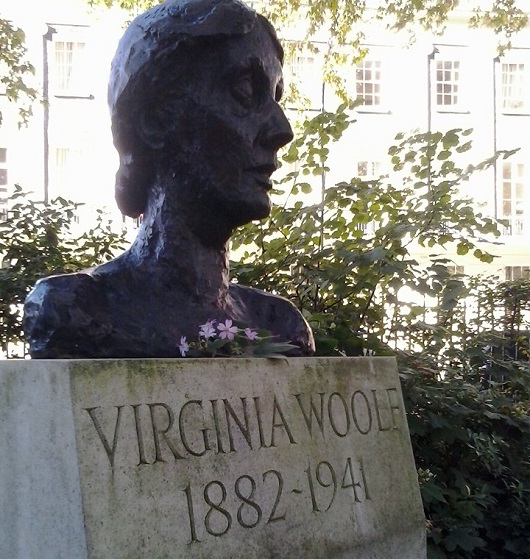New concert highlights the music of Virginia Woolf

A concert highlighting the role of music in Virginia Woolf’s writing will take place at the Byre Theatre in St Andrews this Friday (4 March).
Opening with the ‘Skye Boat Song’, the University of St Andrews’ event aims to show how Woolf suggested songs which evoked menace and political strife, despite their lilting music, in her key work To the Lighthouse.
The ‘Skye Boat Song’ describes Bonnie Prince Charlie’s flight to Skye after the defeat of Jacobite troops at Culloden and Woolf used this to amplify the threats beneath the apparent idyll of the Ramsay family’s sojourn to Skye with their guests.
Also included in the concert will be arrangements of Scottish folk songs and works by Scottish composers selected to reflect the novel’s subjects and characters.
This first event entitled ‘To the Lighthouse’ is the inaugural concert of a series called ‘Virginia Woolf and Music’ which explores the role of music in Woolf’s life. The series includes new commissions, world premieres and little-known music by women composers.
The event combines readings from Woolf’s To the Lighthouse with corresponding musical works intended to explore the characters and themes of the extract. Unlike later concerts in the series, which explore music directly inspired by Woolf’s works and which inspired Woolf, the inaugural concert is intended as a more oblique evocation of the themes and characters of To the Lighthouse (1927).
Other musical works featuring in the concert will be by Benjamin Britten; the great Scottish-American composer Thea Musgrave; Master of the Queen’s Music Judith Weir; and the composer David Knotts, who has written several pieces responding to Woolf’s writing.
Most of the music – with the exception of Knotts’ abstract piece for oboe and piano – is either Scottish folk song with which Woolf would have been familiar, or settings of Scottish folk songs by Scottish composers or those of Scottish descent.
Woolf (1882-1941) was a knowledgeable, almost daily, listener to ‘classical’ music, fascinated by the cultural practice of music and by the relationship between music and writing. Towards the end of her life she famously remarked: “I always think of my books as music before I write them.”
Dr Emma Sutton, of the School of English, said: “When Woolf started working on her fifth novel To the Lighthouse (which E.M. Forster called ‘a novel in sonata form’) she had not visited Skye, where it is set. And when she did visit, her response to the folk music she heard was ambivalent: Woolf was suspicious of nationalist music, whether Scottish or English, and the novel sets allusions to folk song against metropolitan, cosmopolitan works from music halls. Nonetheless, Woolf’s novels celebrate the communal, accessible but historically embedded qualities of folk music.”
The concert will be accompanied by a pre-performance talk in the Byre Theatre conference room at 2pm on the same day (Friday 4 March), as well as by an exhibition entitled ‘Virginia Woolf and St Andrews’ in the foyer of the theatre which will run until the end of March.
For more information, visit Virginia Woolf Music.
Note to editors:
Issued by the Press Office, University of St Andrews, contactable on 01334 462530 or email [email protected].
Ref: Virginia Woolf 02032016
Category Research